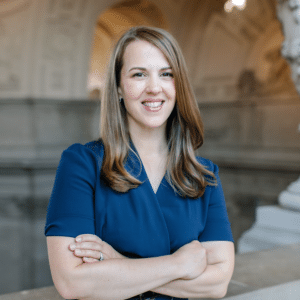
By ProFellow Founder, Dr. Vicki Johnson
I am often asked what is the best time to begin preparing your applications for graduate school. My general advice is: begin as early as possible! As a first point of reference, it’s important to know when the deadlines are. The academic year for universities in the US and Canada begins in September. Deadlines to apply for these programs begin nearly a year before: between mid-November and January. A common deadline for master’s and PhD programs in the United States is December 1.
I encourage applicants to find and apply exclusively to fully funded graduate programs if they can, but if you’re planning to apply to any non-funded graduate programs and will need funding, you need to apply to funding opportunities at the same time that you apply to graduate school. Deadlines to apply to fellowships occur at the same time as graduate school applications, from October to January.
Many aspiring graduate students make the mistake of waiting to look into funding options until after they have applied or have been accepted to graduate school – this is too late!
Also, fellowships and funding awards are highly competitive and require as much effort and focus as your graduate school applications.
So why put off this effort?
I strongly recommend you start now!
By dedicating just a few hours of effort per week, you can make significant progress and get ahead of the competition.
Here’s why:
You need to find fellowships and fully funded graduate programs to apply to, and it can take some time to identify these options and find the right fit for your goals. (Be sure to sign up to view ProFellow’s free database listing 600+ fully funded PhD and master’s programs in many disciplines, as well as hundreds of masters and doctoral fellowships!)
You need to make time to do your background research on both the awards and graduate programs so you can prepare tailored applications for each program and award.
Although some schools may offer multiple deadlines such as an Early Regular and Final deadline for rolling admissions, to be eligible for funding opportunities from the University, you may need to apply to the EARLY deadline to be eligible to be considered for funding. Even if an early application is not required, it’s a good idea to apply early. Be sure to ask admissions if it is necessary to apply to the early deadline to be considered for funding.
Suggested Timeline of Application Activities
Here’s a timeline of activities that will help you achieve strong and detailed applications for both graduate school and external fellowships.
January – May:
Carefully research fully funded graduate programs (start with our free Directory), external fellowships (check out the free ProFellow database), and funding options for programs that are not fully funded. Narrow down your list of programs and read up on the application requirements. Make contacts with faculty if you are applying to doctoral programs.
June – August:
Prepare your personal statements and research proposals, update your resume/CV, and work on your short answer responses. Don’t underestimate how much time you’ll need for this! Set aside 3-6 hours per week. Also set aside time to study and prepare for required tests like the GRE if necessary.
September:
Take any required tests. Finalize your applications with feedback from mentors and colleagues that you trust. Request your recommendation letters.
October – November:
Re-take tests if necessary. Carefully spell- and grammar-check your applications. Submit EARLY. A common deadline is December 1.
December:
Relax! Enjoy your holidays. You may need to prepare for invitations to interview that could begin as soon as January.
I prepared extensively for my fellowship and graduate school applications. I knew this process would take time, so I allowed myself a loooong runway so I could write, edit and edit again.
I and other multi-award winners know that you need to tailor each application to the opportunity. This includes your CV, personal statement, and research proposal. Many people repurpose the same materials for all their applications, but this is why so few people are successful in the competitive application process.
Tailoring your applications won’t be difficult if you have allowed yourself plenty of time to write and edit.
My personal motto is: The prepared will succeed!
My preparation helped me achieve entrance to several top graduate programs at Columbia University, Johns Hopkins, Georgetown University, and the London School of Hygiene and Tropical Medicine, among others!
With preparation, you can achieve success too.
For those of you who are eager to successfully find funding opportunities and apply to competitive graduate schools, I invite you to join me in Fully Funded, my signature online course and mentorship program for graduate school and fellowship applicants. The program is self-paced and you can join at any time – but the sooner, the better!
The Fully Funded course and mentorship program will provide you step-by-step guidance and on-going support as you prepare your applications this year. You won’t find another program like this on the market, providing highly effective and holistic guidance to motivated people of all backgrounds, including first-generation students, career changers, older applicants, veterans, international students and more. See the program’s extraordinary success stories and testimonials here.
Make a plan and set yourself up for success. The ProFellow community is rooting for you!

Dr. Vicki Johnson is Founder and CEO of ProFellow, the world’s leading online resource for professional and academic fellowships. She is a four-time fellow, top Ph.D. scholar, Fulbright recipient and an award-winning social entrepreneur. She is the Creator and Director of Fully Funded, an award-winning online course and mentorship program for graduate school applicants seeking to find and win full funding.
© Victoria Johnson / ProFellow, LLC 2021, all rights reserved